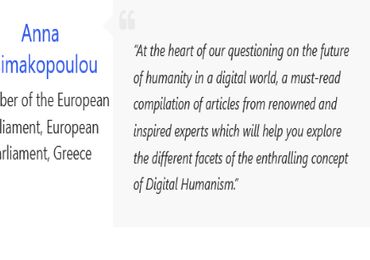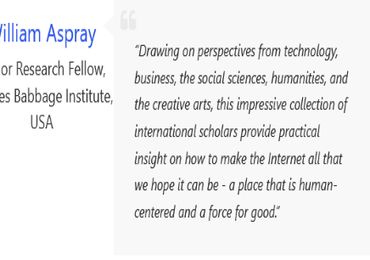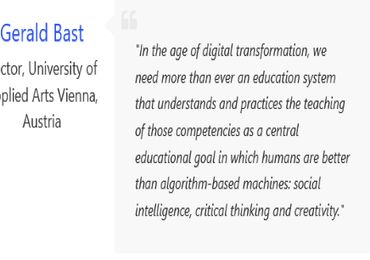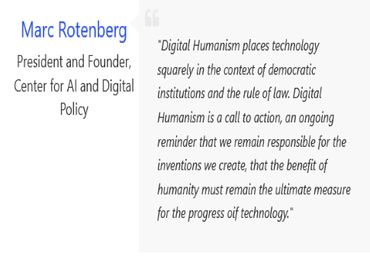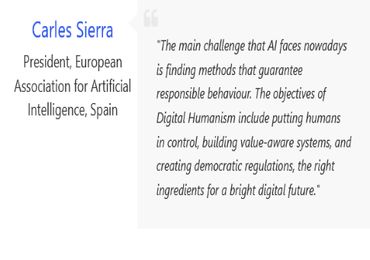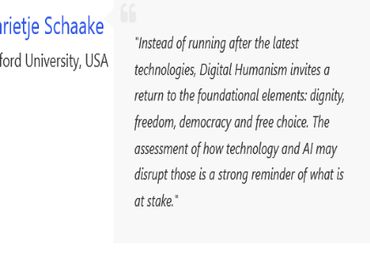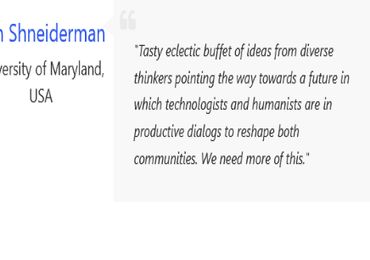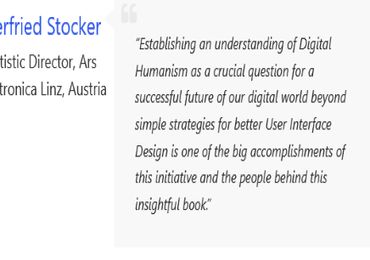Perspectives on Digital Humanism
Open Access Book with Essays from Computer Science, Law, and Humanities.

About the Book
This book is the latest contribution to the ongoing international discussions and developments regarding Digital Humanism.
On This Page
Digital Humanism is young; it has evolved from an unease about the consequences of a digitized world for human beings into an internationally connected community that aims at developing concepts to provide a positive and constructive response. Following up on several successful workshops and a lecture series that bring together authorities of the various disciplines, this book is the latest contribution to the ongoing international discussions and developments. It comprises a collection of 46 articles from experts with different disciplinary and institutional backgrounds who provide their view on the interplay of human and machine.
Please note our open access publishing strategy for this book to enable widespread circulation and accessibility. This means that you can make use of the content freely, as long as you ensure appropriate referencing. At the same time, the book is also published in printed and online versions by Springer.
Testimonials
At the heart of our questioning on the future of humanity in a digital world, a must-read compilation of articles from renowned and inspired experts which will help you explore the different facets of the enthralling concept of Digital Humanism.
Drawing on perspectives from technology, business, the social sciences, humanities, and the creative arts, this impressive collection of international scholars provide practical insight on how to make the Internet all that we hope it can be - a place that is human-centered and a force for good.
In the age of digital transformation, we need more than ever an education system that understands and practices the teaching of those competencies as a central educational goal in which humans are better than algorithm-based machines: social intelligence, critical thinking and creativity.
Digital Humanism places technology squarely in the context of democratic institutions and the rule of law. Digital Humanism is a call to action, an ongoing reminder that we remain responsible for the inventions we create, that the benefit of humanity must remain the ultimate measure for the progress of technology.
The main challenge that AI faces nowadays is finding methods that guarantee responsible behaviour. The objectives of Digital Humanism include putting humans in control, building value-aware systems, and creating democratic regulations, the right ingredients for a bright digital future.
Instead of running after the latest technologies, Digital Humanism invites a return to the foundational elements: dignity, freedom, democracy and free choice. The assessment of how technology and AI may disrupt those is a strong reminder of what is at stake.
Tasty eclectic buffet of ideas from diverse thinkers pointing the way towards a future in which technologists and humanists are in productive dialogs to reshape both communities. We need more of this.
Establishing an understanding of Digital Humanism as a crucial question for a successful future of our digital world beyond simple strategies for better User Interface Design is one of the big accomplishments of this initiative and the people behind this insightful book.
How to Cite
The book: Hannes Werthner, Erich Prem, Edward A. Lee, and Carlo Ghezzi (eds): Perspectives on Digital Humanism, Springer, 2022.
(BibTeX)
An essay within the book (example): Edward A. Lee: Are We Losing Control?, in H. Werthner, E. Prem, E. A. Lee, and C. Ghezzi (eds): Perspectives on Digital Humanism, Springer, 2022.
(BibTeX)
More
Contributions Explore the contributions and download the book.
Authors Click to learn more about the authors.
Editors Click to learn more about the editors.


